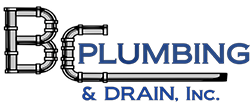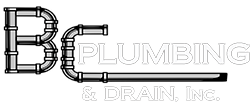When faced with a plumbing issue, deciding whether to handle it yourself or enlist the help of a professional can be challenging. Plumbing problems vary significantly in complexity, and the choice between a DIY solution and professional intervention often hinges on several critical factors. This guide will provide an in-depth analysis of the considerations involved, ensuring you make an informed decision that safeguards your home and finances.
Assessing Your Plumbing Knowledge and Skills
Evaluating Your Expertise
Before deciding to tackle a plumbing issue yourself, it’s essential to assess your own experience and knowledge. Plumbing encompasses a wide range of skills, from basic tasks like unclogging drains to complex repairs such as pipe installations. If you lack familiarity with plumbing tools or techniques, attempting a repair could lead to further damage and increased repair costs.
Tools and Techniques
Familiarity with essential plumbing tools—such as plungers, pipe wrenches, and sealants—can make a significant difference. Understanding how these tools work and how to apply them effectively is crucial for successful DIY repairs. If you’ve previously handled similar issues without complications, you might feel confident in managing minor problems on your own.
Learning Resources
For those new to plumbing, numerous resources are available to enhance your skills. Online tutorials, instructional videos, and DIY plumbing guides can provide valuable insights. However, these resources often fall short when it comes to addressing complex or unusual problems.
Evaluating the Severity of the Plumbing Problem
Minor vs. Major Plumbing Issues
The severity of a plumbing problem significantly influences whether a DIY approach or professional help is more appropriate. Minor issues, such as a clogged sink or a leaky faucet, often lend themselves well to DIY solutions. With the right tools and a bit of patience, these problems can usually be resolved without professional assistance.
Examples of Minor Issues
- Clogged Drains: Often remedied with a plunger, drain snake, or a mixture of baking soda and vinegar.
- Leaky Faucets: Can typically be fixed by replacing washers or O-rings.
On the other hand, major plumbing issues require a higher level of expertise. Problems such as burst pipes, sewage backups, or significant leaks can cause extensive damage if not addressed correctly. These scenarios are best handled by professionals who possess the specialized equipment and knowledge necessary for effective resolution.
Examples of Major Issues
- Burst Pipes: Require immediate attention to prevent extensive water damage.
- Sewage Backups: Involve hazardous waste and complex repair needs.
Considering Time and Cost
Balancing DIY Savings with Professional Costs
One of the primary motivations for DIY repairs is cost savings. However, it’s crucial to consider both the potential for saving money and the risk of incurring higher expenses due to mistakes. DIY repairs can indeed save on labor costs but may lead to more significant issues if not executed correctly.
Time Investment
DIY plumbing projects can be time-consuming, particularly if the issue is complex or if unexpected problems arise. If you have a busy schedule or lack the time to thoroughly address a plumbing problem, calling a professional might be the more efficient option.
Potential Hidden Costs
Mistakes made during DIY repairs can lead to additional costs. For instance, improper installation or repair may cause leaks or damage that requires professional intervention later, often at a higher cost than if the issue had been addressed by a professional from the start.
When to Call a Professional
If the plumbing issue is beyond your expertise, or if you are concerned about the potential for further damage, it’s advisable to call a professional plumber. Professionals bring a wealth of experience and specialized tools that can effectively address complex problems, ensuring that the repair is done correctly and efficiently.
The Advantages of Professional Plumbing Services
Expertise and Experience
Professional plumbers possess extensive training and experience. They are equipped to handle a broad range of issues, from common leaks to intricate pipe systems. Their expertise ensures that problems are resolved safely and effectively, minimizing the risk of future complications.
Advanced Equipment
Plumbers use specialized tools and technologies that are not typically available to homeowners. For example, video inspection equipment can identify hidden issues within pipes, while high-pressure water jets can clear stubborn clogs that DIY methods might miss.
Warranty and Guarantees
Reputable plumbing services often provide warranties or guarantees on their work. This added assurance means that if the problem recurs or if there are issues with the repair, the plumber will address these concerns at no additional cost.
Making the Right Decision
Key Considerations
When deciding between DIY and professional plumbing services, weigh the following factors:
- Your Plumbing Knowledge: Assess whether you have the skills and experience necessary for the repair.
- Severity of the Issue: Determine if the problem is minor or requires professional expertise.
- Time and Cost: Consider how much time you can invest and whether the potential cost of DIY mistakes outweighs professional fees.
Final Thoughts
In conclusion, while DIY plumbing can be a cost-effective solution for minor issues, it is crucial to recognize when a professional is required. For complex problems or when in doubt, the expertise and resources of a professional plumber can provide peace of mind and prevent costly mistakes.

